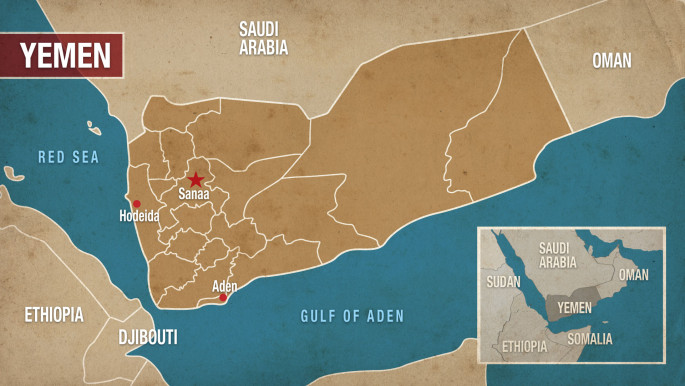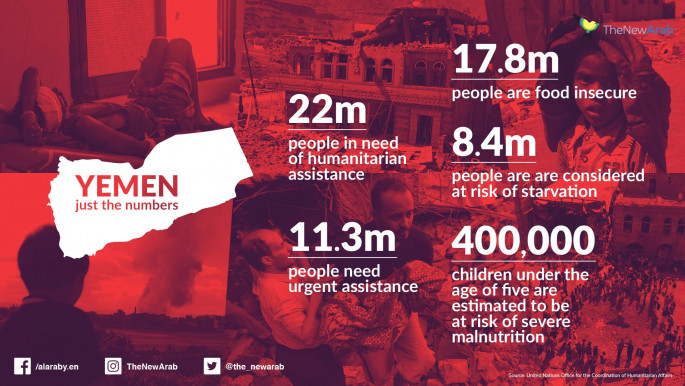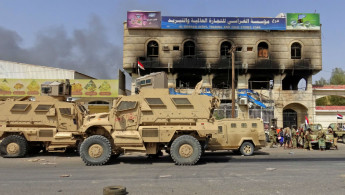Yemen government forces halt Hodeida port offensive
Forces loyal to Yemen's government on Wednesday halted an offensive on the lifeline port of Hodeida as the United Arab Emirates, a key member of the Saudi-led coalition, threw its weight behind "early" UN peace talks.
Three military officials told AFP that pro-government forces were "ordered" to stop their assault against the Iran-linked Houthi rebels until further notice, but would resume operations should the insurgents attack.
The UAE state minister for foreign affairs, Anwar Gargash, said meanwhile his country welcomed the "early convening of UN-led talks in Sweden" and urged warring factions to take advantage of diplomatic efforts.
The UN is pushing for peace talks by the end of the year, and Sweden said it is ready to host them.
The developments came after the offensive on Hodeida by pro-government forces and the Saudi-led coalition, including the UAE, appeared to stall.
After 12 days of clashes, Hodeida was "quiet" and its port was "operating", Gargash tweeted.
 |
|
| [Click to enlarge] |
"We are working closely with the UN on expanding humanitarian assistance for all areas of Yemen," he added.
On the ground in Hodeida, a relative calm was holding for a second full day, and despite the thundering sound of jets flying overhead, no major fighting was reported.
Burnt out cars were seen on the streets of the city, whose port serves as a key lifeline to the impoverished country.
Speaking to AFP earlier, a military official said pro-government forces had temporarily stopped their advance into the port to allow safe passage for civilians, humanitarian staff and wounded.
One military official said however that the pro-government forces would be launching major operations "in the coming days".
"The battles will not stop, except with the liberation of Hodeida and the whole west coast," he said.
On Tuesday, a Houthi spokesman had told a news conference broadcast on the rebels' Al-Masirah TV that they were ready for "war in the streets" of Hodeida.
'Mining the port'
The Houthis, who seized the port in 2014, said they were mining across Hodeida province, airing footage late Tuesday of what they said were landmine explosions targeting pro-government forces.
Three port employees reached by telephone said they had also begun to mine entryways to the port overnight.
The Houthis had planted explosives near two of the port's gates, one that leads to Jizan Road, a main street in the city's north, and the other near the Alsanabel flour mill company, they said.
 |
The UN refugee agency says about 445,000 people have fled Hodeida province since June |  |
"There is only one entrance left into the port, and that is the main gate that leads to Mina Street that trucks use," one employee, who requested anonymity, told AFP.
Hodeida port came under attack late Monday for the first time since June, when government troops supported by a Saudi-led coalition launched an assault on the city.
The port's deputy director, Yahya Sharafeddine, said the main entrance to the docks had been hit, but it was fully functioning.
Residents in Hodeida say they had feared a siege on the city, home to some 600,000 people, with only one major exit route in still open to traffic, on the northern edge.
 |
|
| [Click to enlarge] |
According to the UN's office for the Coordination of Humanitarian Affairs (OCHA) on Tuesday, 34 people were killed among 92 civilian casualties in the first week of November in Hodeida province.
The UN refugee agency (UNHCR) said about 445,000 people have fled Hodeida province since June.
Nearly four years into the war, there has been an increase in international pressure to end the fighting in Hodeida, whose docks are the entry point for some 80 percent of food imports and humanitarian aid into impoverished Yemen.
The UN has warned an attack on the port would be "catastrophic" in a country where half the population is at risk of starvation.
World Food Programme chief David Beasley, who is visiting the country, said up to 14 million Yemenis were on the brink of starvation, and 18 to 19 million were now "food insecure".
"Conditions on the ground are extremely, extremely bad," he told the BBC on Wednesday. "Bottom line, we need for this war to end."
Hodeida port is under a near-total blockade by Saudi Arabia and its allies, who accuse Iran of smuggling arms to the Houthis. Tehran denies the accusation.
According to UN figures, nearly 10,000 people have been killed since the coalition joined the conflict in 2015 to bolster President Abedrabbo Mansour Hadi, triggering what the UN calls the world's worst humanitarian crisis. Rights groups fear the actual toll is a lot higher.





 Follow the Middle East's top stories in English at The New Arab on Google News
Follow the Middle East's top stories in English at The New Arab on Google News
![Israeli forces ordered bombed Gaza's Jabalia, ordering residents to leave [Getty]](/sites/default/files/styles/image_330x185/public/2176418030.jpeg?h=a5f2f23a&itok=_YGZaP1z)

